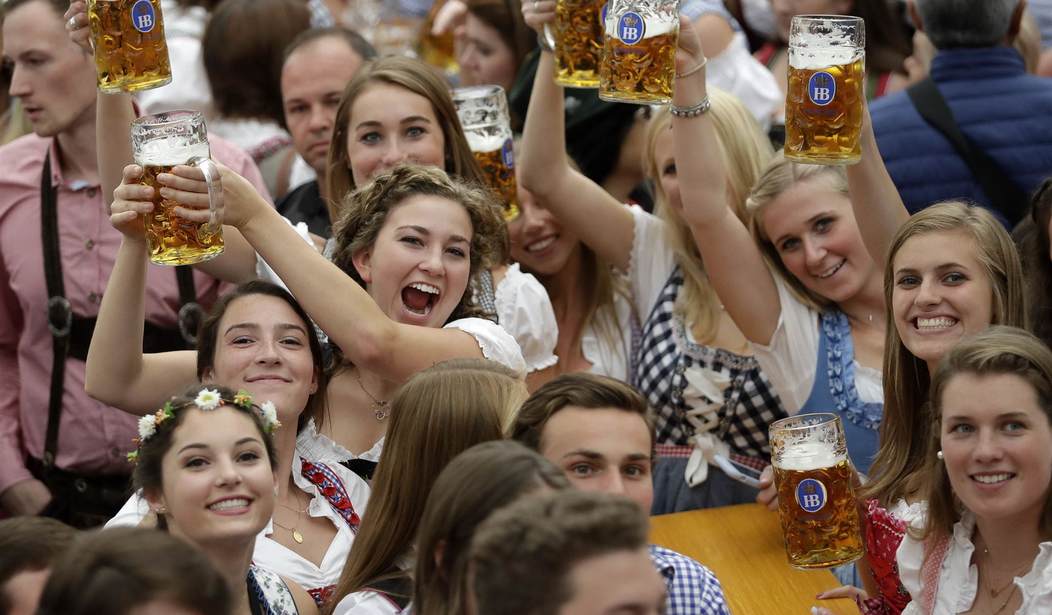It's Oktoberfest in Germany, and millions of Germans and tourists can be found in the pubs, tents, and in parks across the country drinking beer.
For Germans, beer is more than a beverage. It's part of the cultural heritage of Germany. It helped unite the loose collection of hundreds of separate principalities, bishoprics, and free cities into the most powerful nation-state in Europe. Beer was an economic juggernaut
A YouGov survey from 2022 found that almost half of Germans aged 18-24 did not consume alcohol. That's the highest in Europe, and surveys of younger Germans don't offer any hope for the future.
No one is mentioning the fact that 43% of the 5-5 million Muslims in Germany are under 30 years old. That's a lot of people who ostensibly aren't drinking.
The German drinks industry is far from alone in confronting such a situation. Times are tough in Britain, too, with scores of breweries and hundreds of pubs closing annually; wine sales in France have crashed, and in the US increasing numbers of the young in the land that once had prohibition are more likely to be teetotal.
But in Bavaria, the heartland of the traditional brewing industry, the crisis is hitting hard. Schönbrunn, close to the Czechia border, has been the home of the Lang-Bräu brewery for 172 years, surviving some of the most tumultuous events in European history. But after struggling for the past two decades, it has closed. When I visit, the brewer Richard Hopf, 38, explains what it was like to close a family-run firm after six generations. “Some people were crying — most of the village is very sad,” he says, trying to capture the significance of small breweries in these close communities. “In the past there was the church, but for the last 30 years it was the brewery,” he tells me “People would come here, buy your beer, drink one, talk. It was a big place for getting together. Everyone knows each other here.
"Falling sales, rising costs and generational change have created an existential crisis for German beer makers," writes Birrell.
Oettinger Brewery, the most popular brand in Germany in the first part of this century, is closing one of its four plants, according to Stefan Blaschak, the firm's managing director. “The brewing world is crumbling,” he says.
The gaiety of Oktoberfest masks a genuine economic crisis. The closing breweries are part of a manufacturing downturn that is perplexing German citizens who had faith that the good times would keep rolling.
Concealed by the jollity of Bavaria’s biergartens and the frenzied Oktoberfest partying, another national champion is flailing in an economy that is strugging to adapt to a world of rapid political, societal and technological change. The number of German jobless hit 3.02 million in August, the highest figure for a decade, as the manufacturing giants that drove the post-war economic boom shed staff. Industrial output slid 4.3% on the previous month as car production crashed to its lowest level since the start of this century. All those dirndl-clad waitresses clutching overflowing steins of golden Helles might be the nation’s fetching global image, but it is pretty sobering to see that Germans, of all people, are losing their thirst for beer.
A sliding industrial output signals that all is not well in the world's third-largest economy. Bad economic times might just reignite the German taste for beer and other spirits.










